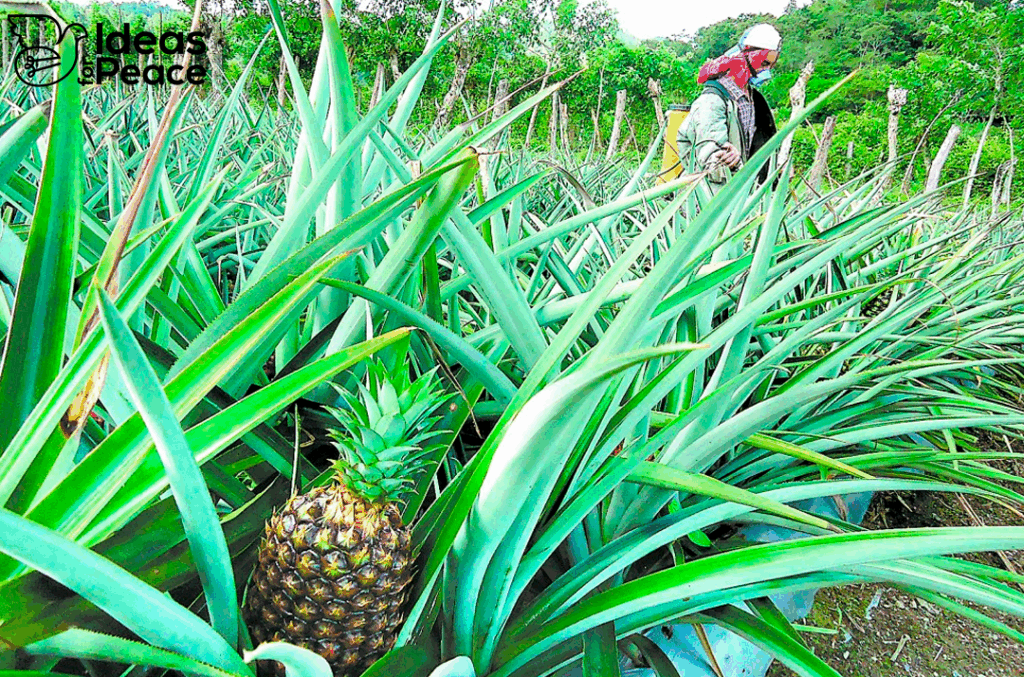Costa Rican Pineapples: Harvesting Abuse

Costa Rican Pineapples: Harvesting Abuse Author: Montserrat Picado Campos Since the 1980s, the Costa Rican government has encouraged the industrial production of pineapple (Echavarría & Prunier, 2020, p. 2). These efforts have resulted in the country being recognized as the leading pineapple exporter worldwide in 2020 (Ibid). This success is highly due to immigrants. In […]
Historia política de Centroamérica: una lucha incesante

Historia política de Centroamérica: una lucha incesante Autor: José Alberto Umaña Salguero Los países centroamericanos se caracterizan por ser los que menos extensión territorial poseen en el continente americano, y a su vez, por haber recorrido un pasado colonial común. Belice, Guatemala, El Salvador, Honduras, Nicaragua, Costa Rica y Panamá compartieron historia como parte del […]
Seguridad de Mujeres Periodistas – Reporte

Lanzamiento reporte “Seguridad de Mujeres Periodistas en El Salvador, Honduras y Nicaragua 2021” El 09 de diciembre, Mariateresa Garrido, editora de este sitio y coordinadora del estudio “Seguridad de Mujeres Periodistas en El Salvador, Honduras y Nicaragua 2021”, presentó los resultados comparados de la investigación realizada entre Julio y Agosto de 2021. En este video […]
Human Security as a Measure of Peace Building
Victor Valle prefaces his Central American Diary with an historical summary
Revolution as Poetry
Regina Eddelman takes her first trip to Nicaragua and finds a nation of poets.
Lessons from the
The General Assembly of the UN watched the “establishment of an active group of friendly countries to play a particularly important role in supporting the reactivation of the social development in the country (Nicaragua), which will facilitate the strengthening of its institutional and democratic structures.” With the whole world watching how the aftermath of the Iraqi intervention by the US and the UK will pan out, should we be watching how cooperative efforts aided by the UN have worked out elesewhere in recent years?
Bill Brown 2
When the Washington Office of Latin America (WOLA) began, Bill Brown and Joe Eldridge, and, later, others divided the tasks on a geographical basis. Bill took Central America, and for the next few years dedicated himself to bringing spokesmen for the oppressed and for change to Washington as well as highlighting the state terrorism that existed throughout most of Central America.
La Carpio: exposing the hidden violence of poverty and marginalization in Costa Rica
La Carpio is a poor community in Costa Rica, nestled against a wealthy enclave of North American and European ex-patriots. Lynn Schneider takes a sobering look at the discrimination and inequalities faced by residents of La Carpio, demonstrating that cultural and structural violence are deeply ingrained, even in a country praised for its long standing commitment to peace.
Crucitas gold mine controversy: a lopsided roundtable
Jessica Barran reports on the Crucitas gold mine roundtable, recently held on UPEACE campus. Representatives from Industrias Infinito, the Costa Rican government, two environmental NGOs (FECON and AIDA), and the University of Costa Rica, were all given a chance to clarify their positions and field questions on this controversial issue.
On the Frustrations of being from a “Restricted Country”
Carla Ortiz reflects on the emotional ups and downs, and the tangle of red tape facing visa applicants from so-called “restricted countries”.
